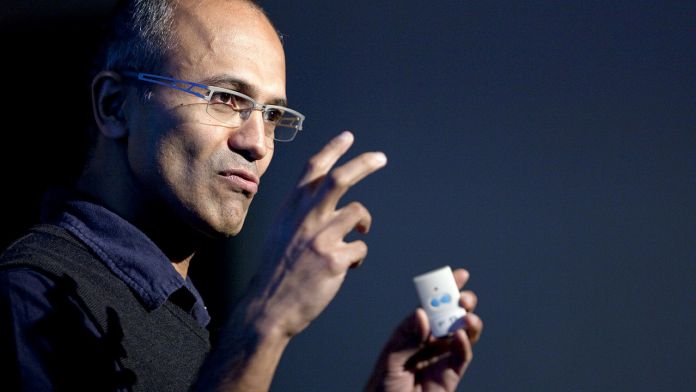At a conference in Munich, Satya Nadella said, “the fundamental need of every person is to be able to use their time more effectively, not to say, ‘let us replace you’.” This isn’t the first time Nadella has echoed such concepts, revealing Microsoft’s plans to democratize AI last year.
No Parlor Tricks
The CEO wants to build AI into commercial and consumer software so that it can make inferences about its environment. Not in a way that is simply “parlor tricks”, but intelligently, preserving human’s unique abilities. Though he spoke much about AI last year, Nadella believes 2017 will be key. “This year and the next will be the key to democratizing AI. The most exciting thing to me is not just our own promise of AI as exhibited by these products, but to take that capability and put it in the hands of every developer and every organization,” he said. He also took the time to reflect on his role as CEO over the years. Nadella has turned the company around since Ballmer’s negative end in 2014, with stock steadily rising and Azure revenue doubling. Despite this, he remains humble: “There’s a thin line between hubris and confidence,” he said. “Always there is risk of hubris coming back, missing trends. The only long-term indicator of success is, ‘how good is your internal culture?’” “What I’ve learned if anything in three years as CEO is, it’s not about celebrating one product,” he said. “That, to me, is the sign of a company that’s built to last.” No doubt one of those products will be Microsoft’s AI platforms. The company recently announced a new Azure cloud platform to intelligently connect cars. It also acquired AI startup Maluuba and experienced a breakthrough in speech parity. Alongside these advancements, the Redmond giant has been giving developers tools to create their own AI. The MS Marco dataset provides developers with the tools to train AI, while CTNK gives the ability to create it. It’s clear that the company has good intentions and doesn’t want a monopoly. Unfortunately, good intentions may not be enough. It feels almost inevitable for companies to use AI as a cost cutting method. In many cases, this will result in a loss of workers. Businesses will need more than words to convince them to hold off on aggressive implementation.




